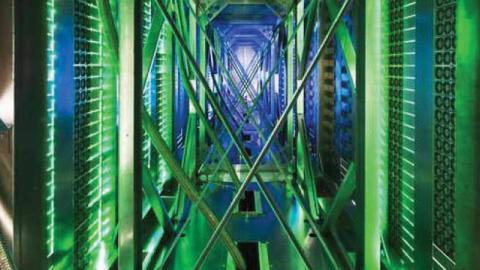Not long ago, a prominent magazine openly asked whether Google makes us stupid. Social media was “ rotting democracy from within, we were told. “Staring at screens all day” was “ destroying kids’ minds and bodies. ” And the World Health Organization labeled those playing large amounts of videogames as suffering from “ "gaming disorder,” a mental disease similar to the kind suffered by gambling addicts.
()":https://www.usatoday.com/story/tech/news/2019/05/28/who-officially-clas…
But now, technology companies are, in the words of even their harshest critics, “pillars of civilization while so many other[s] crumble.()https://twitter.com/AlecStapp/status/1244629075274223617 ” In the midst of the coronavirus, services like Zoom allow children and young adults to continue attending K-12 and college classes. Amazon and other online sellers allow immunosuppressed and elderly Americans to shop from home, rather than brave crowds at physical stores. Social media has become a powerful tool for doctors to "discuss how to better treat coronavirus-infected patients. And the videogame industry has undertaken a campaign, spearheaded by none other than the WHO, to promote online gaming as a way to “connect people through the lens of joy, purpose and meaning” while maintaining social distancing measures.
Right now, America faces perhaps its greatest collective call to action since World War II. In this fight against the “ invisible enemy, ” we must all do our part by committing to social distancing. When we do this, we help “flatten the curve” of novel cases, thus reducing the exhaustion of hospital resources.
Decades ago, the thought of this would be unfathomable. If mandated, Americans would be counting down the days until a second Great Depression, isolated in their homes with nothing to console themselves but the contents of their tape deck or VHS collection. Seeking to avoid this, rather than invoke “shelter in place” orders like they are doing now, governors would instead likely continue business as usual, and millions, if not tens of millions, of Americans would perish while the American healthcare system ground to a halt.
But thanks to technology, America isn’t actually shut down, with millions in traditionally nonessential industries continuing to work and receive a paycheck. While drinking their morning coffee at the kitchen table, these Americans read their email, chat via Slack, and use Zoom to attend team meetings. Although these types of technological solutions are typically prevalent in more white-collar occupations, late night TV hosts and even politicians have adopted them too.
Technology can also serve as a pressure valve for more essential sectors. Services like Instacart and Amazon Prime Now help limit crowding in grocery stores. When customers wish to brave these stores themselves, contactless payment methods like Apple Pay minimize contamination and increase the speed of checkout. Telehealth providers, meanwhile, allow individuals concerned about a possible infection to first undergo a virtual consultation, reducing the strain on hospitals and ERs. Tinkerers are discovering ways to 3D print desperately-needed masks and ventilator parts. And, if approved by regulators, at-home test kits might allow one to see whether she’s infected with the virus without ever having to see a doctor at all.
There’s more. Peloton, alongside countless mobile apps, allows for remote workout sessions with live fitness instructors. Websites like the Internet Archive are fulfilling their potential, becoming a virtual Library of Alexandria. Video calling apps of all stripes allow extended families to connect while remaining physically separated. And thanks to Netflix and Twitter, strangers can openly discuss whether an exotic animal owner’s neighbor murdered her husband and fed his body to tigers.
To be clear—the world as we knew it before the coronavirus no longer exists. Families are losing loved ones, small businesses are facing potential bankruptcies, 401ks have shrunk, and millions of Americans are wondering where their next paycheck will come from. Employees of the hospitality and manufacturing industries, among others, simply cannot telework. Technology is not a silver bullet.
But thanks to technology, during this time of crisis, we can more thoroughly commit to social distancing and, in the process, save lives. And perhaps above all else, we can continue to hold onto a sense of normalcy and communal belonging that would otherwise be impossible.
After the current crisis subsides, life returns to normal, and political alarmists resume their crusades against the supposed dangers of technology, let us not forget the astounding amount of good that “big tech” does for humanity, particularly in times like these.
Read in RealClear MArkets


















